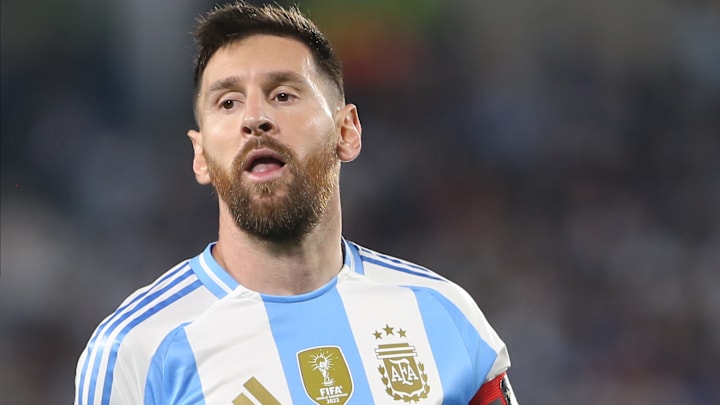This coming Thursday, on the 14th, Paraguay will host a full house for the World Cup Qualifier against Argentina. But perhaps with the highest degree of novelty, Paraguayan soccer director Fernando Villasboa has forbidden fans from wearing any jersey with Lionel Messi's name. The decision was marked as the so-called "anti-Messi law," designed to avoid the Argentine idol stealing the attention of the local fans. Villasboa dreams of the Defensores del Chaco Stadium as a true Paraguayan fortress, where only the colors of Albirroja will be bright in the stands.
Follow Playing for 90 on X (Twitter).
The "Anti-Messi Law" and an Attempt at Controlling the Atmosphere
Surprising is this decision by Villasboa, given the possible aftermath from such a measure related to the fans and the spectacle of the game itself. Considering that soccer is a passion in most countries, Messi's presence automatically signals the presence not only of Argentine fans but also the locals and other international fans who are mesmerized by the No. 10 talent. The ban, therefore, serves to balance the energy in the stands, making sure that Paraguayan players feel direct support from their fans without "invasion" in t-shirts dedicated to an Argentine star.
He wants the Paraguayan fans to defend their turf-a curious tactic if ever there was one, but certainly one that could raise the energy of the home crowd. He knows, after all, that on the pitch, Paraguay can hardly compete with Argentina, so at least in the stands, he wants to match the enormous following that Messi and his colleagues attract wherever they go.
The History of the Law: The First Trial with Vinícius Jr.
Curiously, this is not the first time Villasboa has used such a measure. In September, before Paraguay's clash with Brazil, he barred fans from wearing Vinícius Júnior's jersey, be it of Real Madrid or any other club the Brazilian had represented. The goal was crystal clear: not to have the Paraguayan crowd "diluted" by eventual Brazilian fans that might appear with jerseys of the Brazilian team or big clubs such as Flamengo and Real Madrid.
That was a controversial strategy, but apparently, Villasboa thought that worked, as he repeated the same playbook against Argentina. As in the previous game, with all the attention for Messi, the plan is to "paint" the stadium with only its national colours. It may be a very controversial way, but it's one in which the federation tries, on its part, to mold the atmospheric conditions at the stadium.
Security or Strategy? Besides building support for Albirroja, Villasboa cites safety concerns as the reason for the ban. In fully packed stadiums where the rivalry between sets of fans is heated, this may be one way to lessen the possibility of fights and other incidents from occurring in the stands. This is more acceptable in games with neighboring countries or historic rivals, because even slight provocations can create conflicts.
Of course, one can understand the point of safety. More view it as Villasboa's move to keep the player in his control and to retain the identity of Paraguayan fans to himself. He does not seem to want Messi's star to outshine the support that Paraguayan players need urgently at high-stake events like the World Cup Qualifiers.
